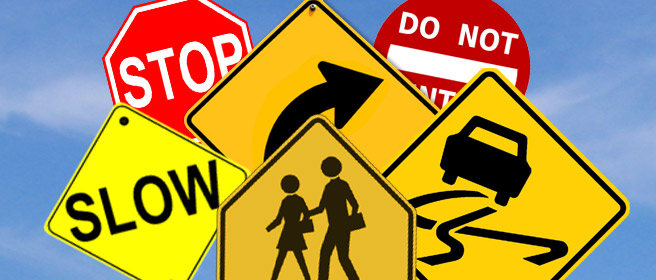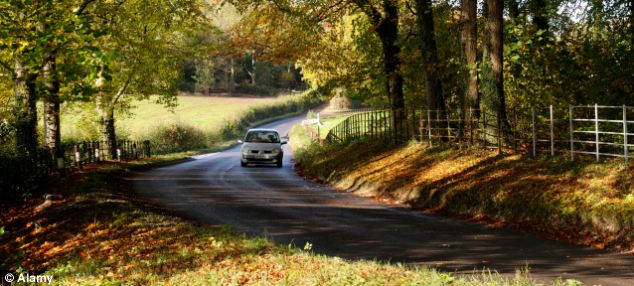Last week, between 20-26th November, it was road safety week, the biggest UK road safety event. This year’s overall message was to “speed down and save lives”. Throughout the week, there was increased awareness and promotion of live saving messages of road safety. However, it doesn’t stop there, we need to be constantly aware of road safety and make it a priority every time we are behind the wheel.
With Christmas and New Year celebrations coming up, many of you will be heading out to visit your loved ones or may even take a few memorable road trips across the UK with a caravan on tow. During the busy month of December, there is bound to be an increase of traffic, shorter daylight hours and poorer weather conditions, it is important that you acknowledge road safety even more during this season. Once you are behind the wheel you have full responsibility of protecting yourself and others when driving, not considering road safety can cost valuable lives. We have compiled some helpful road safety information for you to take note of on your next drive this winter.
Knowing road signs
Do you know your road signs? It’s pretty easy to forget certain road signs, especially if you see a sign you have never come across to before. Do you remember the last time you looked at the Highway Code? Most likely when you took your theory and driving test. It’s time to open it once again, borrow the latest version of the Highway Code or even look online to stay updated with the rules on the road, speed limits and road signs across the UK. You may be surprised at the amount of signs you don’t know or have never recognised before. So next time you see a new road sign, you will be able to recognise it instantly and you will be more focused and attentive when driving and can plan ahead early.
What to do if you break down
The very first thing to do is to immediately switch on your hazard lights and put your warning triangle on the road about 50 metres behind your car. Call for roadside assistance immediately and if you’re stranded in a deserted area, call a breakdown recovery service, or if you are unable to use a mobile phone, walk to the nearest emergency phone.
Before going on the road…
How you drive is important, but it is vital to consider simple vehicle checks before you head out for a journey. It’s much better to discover an unsafe tyre before you set off rather than finding out whilst your driving. Be sure to have vehicle checks on tyres, oil level, filter, transmission fluid, radiator fluid, windshield wipers, belts, brakes, lights, engine and battery. If this is a first-time trip, map your route in advance and if you end up losing your way, stop in a safe and convenient place and look at a map to help you get back on track. It is also handy to have an alternate route ready, just in case. Make sure to get plenty of rest before leaving, especially if it is a long hour journey. If so, it is important to take regular breaks and have plenty of water with you. Pack all your travel accessories carefully by ensuring your roof box or cycle carrier is safely secured so it doesn’t shift suddenly during an unexpected stop.
When you are on the road…
Ensuring all passengers and the driver have their seatbelt on is a simple thing that can’t be forgotten. When you are surrounded by amazing views in the UK, you can easily be distracted, but you can’t afford to allow yourself to get distracted, it is important to always keep your attention focused on the road. Be aware of road conditions by preparing to slow down or stop when necessary and check weather conditions before travelling, and if certain routes are closed. Be extra careful if you do stumble upon bad weather all of a sudden and pull off the road if necessary. Be security conscious by leaving your car parked in an easily visible location and don’t leave any valuables in your car and make sure to pack an emergency medical kit.
Whether it’s a caravan or a trailer, there is a lot more to think about when you are towing. The weight of a loaded trailer will inevitably affect a vehicle’s performance and you will notice that moving off needs more effort, slowing down and stopping takes a lot longer and bends need to be approached slowly and carefully. A well fitted and maintained towbar is fundamental for road safety. You should always examine the tow bracket regularly, checking for cracking or serious rusting and that the bolts are correctly tightened. Detachable towbars should be treated with extra care. When in place, check if there is no excessive movement. If you are uncertain about your towbar, have it checked by a towbar specialist. More information on towing a caravan has been covered in our ‘how to be safe when towing’ blog.
Staying safe on country roads
A majority of holiday destinations in the UK are located in rural areas. Motorists who are used to driving in built-up areas may be accustomed to driving at the speed limit. This is more likely to be less safe, as many rural roads carry limits of 50mph or 60mph, and urban drivers may feel they should be driving at these speeds. However, rural roads require different driving skills, such as sharp bends, unexpected hazards and changing conditions can all catch out the unwary. That’s why it’s more important to adjust your speed to the road and weather conditions, not by the speed limit. One important factor to look out for in country roads are bends. The correct way to deal with these particular roads is to slow your car ahead of the bend to a speed, which will allow you to stop if faced with an unexpected hazard.
Next time you head out for an adventure, be sure to keep these road safety tips in mind. Once you are behind the wheel, expect the unexpected when you are on the road. When driving you have full responsibility and control of the vehicle, make sure you are driving safe on your next road trip!




